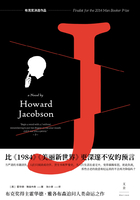F
ROM SOMEWHERE at the bottom of a passage the smell of roasting coffee—real coffee, not Victory Coffee—came foating out into the street。 Winstonpaused involuntarily。 For perhaps two seconds he was back in the half-forgotten world of his childhood。Then a door banged, seeming to cut off the smell as abruptly as though it had been a sound。
He had walked several kilometres over pavements, and his varicose ulcer was throbbing。 This was the second time in three weeks that he had missed an evening at the Community Centre, a rash act, since you could be certain that the number of your attendances at the Centre was carefully checked。In principle a Party member had no spare time, and was never alone except in bed。It was assumed that when he was not working, eating, or sleeping he would be taking part in some kind of communal recreation;to do anything that suggested a taste for solitude, even to go for a walk by yourself, was always slightly dangerous。There was a word for it in Newspeak:OWNLIFE, it was called, meaning individualism and eccentricity。But this evening as he came out of the Ministry the balminess of the April air had tempted him。The sky was a warmer blue than he had seen it that year, and suddenly the long, noisy evening at the Centre, the boring, exhausting games, the lectures, the creaking camaraderie oiled by gin, had seemed intolerable。On impulse he had turned away from the bus stop and wandered off into the labyrinth of London, frst south, theneast, then north again, losing himself among unknown streets and hardly bothering in which direction he was going。
‘If there is hope,'he had written in the diary,‘it lies in the proles。'The words kept coming back to him, statement of a mystical truth and a palpable absurdity。 He was somewhere in the vague, brown-coloured slums to the north and east of what had once been Saint Pancras Station。He was walking up a cobbled street of little two-storey houses with battered doorways which gave straight on the pavement and which were somehow curiously suggestive of ratholes。There were puddles of filthy water here and there among the cobbles。In and out of the dark doorways, and down narrow alley-ways that branched off on either side, people swarmed in astonishing numbers—girls in full bloom, with crudely lipsticked mouths, and youths who chased the girls, and swollen waddling women who showed you what the girls would be like in ten years'time, and old bent creatures shuffing along on splayed feet, and ragged barefooted children who played in the puddles and then scattered at angry yells from their mothers。Perhaps a quarter of the windows in the street were broken and boarded up。Most of the people paid no attention to Winston;a few eyed him with a sort of guarded curiosity。Two monstrous women with brick-red forearms folded across their aprons were talking outside a doorway。Winston caught scraps of conversation as he approached。
‘“Yes,”I says to'er,“that's all very well,”I says。“But if you'd of been in my place you'd of done the same as what I done。 It's easy to criticize,”I says,“but you ain’t got the same problems as what I got。”’
‘Ah,'said the other,‘that's jest it。 That's jest where it is。'
The strident voices stopped abruptly。 The women studied him in hostile silence as he went past。But it was not hostility, exactly;merely a kind of wariness, a momentary stiffening, as at the passing of some unfamiliar animal。The blue overalls of the Party could not be a common sight in a street like this。Indeed, it was unwise to be seen in such places, unless you had definite business there。The patrols might stop you if you happened to run into them。‘May I see your papers, comrade?What are you doing here?What time did you leave work?Is this your usual way home?'—and so on and so forth。Not that there was any rule against walking home by an unusual route;but it was enough to draw attention to you if the Thought Police heard about it。
Suddenly the whole street was in commotion。 There were yells of warning from all sides。People were shooting into the doorways like rabbits。A young woman leapt out of a doorway a little ahead of Winston, grabbed up a tiny child playing in a puddle, whipped her apron round it, and leapt back again, all in one movement。At the same instant a man in a concertina-like black suit, who had emerged from a side alley, ran towards Winston, pointing excitedly to the sky。
‘Steamer!'he yelled。‘Look out, guv'nor!Bang over'ead!Lay down quick!'
‘Steamer'was a nickname which, for some reason, the proles applied to rocket bombs。 Winston promptly flung himself on his face。The proles were nearly always right when they gave you a warning of this kind。They seemed to possess some kind of instinct which told them several seconds in advance when a rocket was coming, although the rockets supposedly travelled faster than sound。Winston clasped his forearms above his head。There was a roar thatseemed to make the pavement heave;a shower of light objects pattered on to his back。 When he stood up he found that he was covered with fragments of glass from the nearest window。
He walked on。 The bomb had demolished a group of houses 200 metres up the street。A black plume of smoke hung in the sky, and below it a cloud of plaster dust in which a crowd was already forming around the ruins。There was a little pile of plaster lying on the pavement ahead of him, and in the middle of it he could see a bright red streak。When he got up to it he saw that it was a human hand severed at the wrist。Apart from the bloody stump, the hand was so completely whitened as to resemble a plaster cast。
He kicked the thing into the gutter, and then, to avoid the crowd, turned down a side-street to the right。 Within three or four minutes he was out of the area which the bomb had affected, and the sordid swarming life of the streets was going on as though nothing had happened。It was nearly twenty hours, and the drinking-shops which the proles frequented(‘pubs',they called them)were choked with customers。From their grimy swing doors, endlessly opening and shutting, there came forth a smell of urine, sawdust, and sour beer。In an angle formed by a projecting house-front three men were standing very close together, the middle one of them holding a folded-up newspaper which the other two were studying over his shoulder。Even before he was near enough to make out the expression on their faces, Winston could see absorption in every line of their bodies。It was obviously some serious piece of news that they were reading。He was a few paces away from them when suddenly the group broke up and two of the men were inviolent altercation。 For a moment they seemed almost on the point of blows。
‘Can't you bleeding well listen to what I say?I tell you no number ending in seven ain't won for over fourteen months!'
‘Yes, it'as, then!'
‘No, it'as not!Back'ome I got the'ole lot of'em for over two years wrote down on a piece of paper。 I takes'em down reg’lar as the clock。An’I tell you, no number ending in seven—’
‘Yes, a seven‘AS won!I could pretty near tell you the bleeding number。 Four oh seven, it ended in。It were in February—second week in February。'
‘February your grandmother!I got it all down in black and white。 An'I tell you, no number—'
‘Oh, pack it in!'said the third man。
They were talking about the Lottery。 Winston looked back when he had gone thirty metres。They were still arguing, with vivid, passionate faces。The Lottery, with its weekly pay-out of enormous prizes, was the one public event to which the proles paid serious attention。It was probable that there were some millions of proles for whom the Lottery was the principal if not the only reason for remaining alive。It was their delight, their folly, their anodyne, their intellectual stimulant。Where the Lottery was concerned, even people who could barely read and write seemed capable of intricate calculations and staggering feats of memory。There was a whole tribe of men who made a living simply by selling systems, forecasts, and lucky amulets。Winston had nothing to do with the running of the Lottery, which was managed by the Ministry of Plenty, but he was aware(indeedeveryone in the party was aware)that the prizes were largely imaginary。 Only small sums were actually paid out, the winners of the big prizes being non-existent persons。In the absence of any real intercommunication between one part of Oceania and another, this was not diffcult to arrange。
But if there was hope, it lay in the proles。 You had to cling on to that。When you put it in words it sounded reasonable;it was when you looked at the human beings passing you on the pavement that it became an act of faith。The street into which he had turned ran downhill。He had a feeling that he had been in this neighbourhood before, and that there was a main thoroughfare not far away。From somewhere ahead there came a din of shouting voices。The street took a sharp turn and then ended in a fight of steps which led down into a sunken alley where a few stall-keepers were selling tired-looking vegetables。At this moment Winston remembered where he was。The alley led out into the main street, and down the next turning, not fve minutes away, was the junk-shop where he had bought the blank book which was now his diary。And in a small stationer's shop not far away he had bought his penholder and his bottle of ink。
He paused for a moment at the top of the steps。 On the opposite side of the alley there was a dingy little pub whose windows appeared to be frosted over but in reality were merely coated with dust。A very old man, bent but active, with white moustaches that bristled forward like those of a prawn, pushed open the swing door and went in。As Winston stood watching, it occurred to him that the old man, who must be eighty at the least, had already been middle-aged when the Revolution happened。He and a few others like him were the last links that now existed with thevanished world of capitalism。 In the Party itself there were not many people left whose ideas had been formed before the Revolution。The older generation had mostly been wiped out in the great purges of the ffties and sixties, and the few who survived had long ago been terrified into complete intellectual surrender。If there was any one still alive who could give you a truthful account of conditions in the early part of the century, it could only be a prole。Suddenly the passage from the history book that he had copied into his diary came back into Winston's mind, and a lunatic impulse took hold of him。He would go into the pub, he would scrape acquaintance with that old man and question him。He would say to him:‘Tell me about your life when you were a boy。What was it like in those days?Were things better than they are now, or were they worse?'
Hurriedly, lest he should have time to become frightened, he descended the steps and crossed the narrow street。 It was madness of course。As usual, there was no defnite rule against talking to proles and frequenting their pubs, but it was far too unusual an action to pass unnoticed。If the patrols appeared he might plead an attack of faintness, but it was not likely that they would believe him。He pushed open the door, and a hideous cheesy smell of sour beer hit him in the face。As he entered the din of voices dropped to about half its volume。Behind his back he could feel everyone eyeing his blue overalls。A game of darts which was going on at the other end of the room interrupted itself for perhaps as much as thirty seconds。The old man whom he had followed was standing at the bar, having some kind of altercation with the barman, a large, stout, hook-nosed young man with enormous forearms。A knot of others, standing round withglasses in their hands, were watching the scene。
‘I arst you civil enough, didn't I?'said the old man, straightening his shoulders pugnaciously。‘You telling me you ain't got a pint mug in the'ole bleeding boozer?'
‘And what in hell's name IS a pint?'said the barman, leaning forward with the tips of his fngers on the counter。
‘‘Ark at'im!Calls'isself a barman and don't know what a pint is!Why, a pint's the'alf of a quart, and there’s four quarts to the gallon。‘Ave to teach you the A, B,C next。’
‘Never heard of'em,'said the barman shortly。‘Litre and half litre—that's all we serve。 There's the glasses on the shelf in front of you。'
‘I likes a pint,'persisted the old man。‘You could'a drawed me off a pint easy enough。 We didn't'ave these bleeding litres when I was a young man。'
‘When you were a young man we were all living in the treetops,'said the barman, with a glance at the other customers。
There was a shout of laughter, and the uneasiness caused by Winston's entry seemed to disappear。 The old man's white-stubbled face had flushed pink。He turned away, muttering to himself, and bumped into Winston。Winston caught him gently by the arm。
‘May I offer you a drink?'he said。
‘You're a gent,'said the other, straightening his shoulders again。 He appeared not to have noticed Winston's blue overalls。‘Pint!'he added aggressively to the barman。‘Pint of wallop。'
The barman swished two half-litres of dark-brown beer into thick glasses which he had rinsed in a bucket under the counter。 Beer was the only drink you could get in prolepubs。 The proles were supposed not to drink gin, though in practice they could get hold of it easily enough。The game of darts was in full swing again, and the knot of men at the bar had begun talking about lottery tickets。Winston's presence was forgotten for a moment。There was a deal table under the window where he and the old man could talk without fear of being overheard。It was horribly dangerous, but at any rate there was no telescreen in the room, a point he had made sure of as soon as he came in。
‘'E could'a drawed me off a pint,'grumbled the old man as he settled down behind a glass。‘A'alf litre ain't enough。 It don’t satisfy。And a’ole litre’s too much。It starts my bladder running。Let alone the price。’
‘You must have seen great changes since you were a young man,'said Winston tentatively。
The old man's pale blue eyes moved from the darts board to the bar, and from the bar to the door of the Gents, as though it were in the bar-room that he expected the changes to have occurred。
‘The beer was better,'he said fnally。‘And cheaper!When I was a young man, mild beer—wallop we used to call it—was fourpence a pint。 That was before the war, of course。'
‘Which war was that?'said Winston。
‘It's all wars,'said the old man vaguely。 He took up his glass, and his shoulders straightened again。‘‘Ere's wishing you the very best of'ealth!”'
In his lean throat the sharp-pointed Adam's apple made a surprisingly rapid up-and-down movement, and the beer vanished。 Winston went to the bar and came back with two more half-litres。The old man appeared to have forgotten his prejudice against drinking a full litre。
‘You are very much older than I am,'said Winston。‘You must have been a grown man before I was born。 You can remember what it was like in the old days, before the Revolution。People of my age don't really know anything about those times。We can only read about them in books, and what it says in the books may not be true。I should like your opinion on that。The history books say that life before the Revolution was completely different from what it is now。There was the most terrible oppression, injustice, poverty worse than anything we can imagine。Here in London, the great mass of the people never had enough to eat from birth to death。Half of them hadn't even boots on their feet。They worked twelve hours a day, they left school at nine, they slept ten in a room。And at the same time there were a very few people, only a few thousands—the capitalists, they were called—who were rich and powerful。They owned everything that there was to own。They lived in great gorgeous houses with thirty servants, they rode about in motor-cars and four-horse carriages, they drank champagne, they wore top hats—'
The old man brightened suddenly。
‘Top'ats!'he said。‘Funny you should mention'em。 The same thing come into my'ead only yesterday, I dono why。I was jest thinking, I ain't seen a top’at in years。Gorn right out, they’ave。The last time I wore one was at my sister-in-law’s funeral。And that was—well, I couldn’t give you the date, but it must’a been ffty years ago。Of course it was only’ired for the occasion, you understand。’
‘It isn't very important about the top hats,'said Winston patiently。‘The point is, these capitalists—they and a few lawyers and priests and so forth who lived on them—werethe lords of the earth。 Everything existed for their benefit。You—the ordinary people, the workers—were their slaves。They could do what they liked with you。They could ship you off to Canada like cattle。They could sleep with your daughters if they chose。They could order you to be fogged with something called a cat-o'-nine-tails。You had to take your cap off when you passed them。Every capitalist went about with a gang of lackeys who—'
The old man brightened again。
‘Lackeys!'he said。‘Now there's a word I ain't'eard since ever so long。 Lackeys!That reg'lar takes me back, that does。I recollect—oh, donkey’s years ago—I used to sometimes go to Yde Park of a Sunday afternoon to’ear the blokes making speeches。Salvation Army, Roman Catholics, Jews, Indians—all sorts there was。And there was one bloke—well, I couldn’t give you’is name, but a real powerful speaker’e was。’E didn’t’alf give it’em!“Lackeys!”’e says,“lackeys of the bourgeoisie!Flunkies of the ruling class!”Parasites—that was another of them。And’yenas—’e defnitely called’em’yenas。Of course’e was referring to the Labour Party, you understand。’
Winston had the feeling that they were talking at cross-purposes。
‘What I really wanted to know was this,'he said。‘Do you feel that you have more freedom now than you had in those days?Are you treated more like a human being?In the old days, the rich people, the people at the top—'
‘The'Ouse of Lords,'put in the old man reminiscently。
‘The House of Lords, if you like。 What I am asking is, were these people able to treat you as an inferior, simply because they were rich and you were poor?Is it a fact, for instance, that you had to call them“Sir”and take off your cap whenyou passed them?'
The old man appeared to think deeply。 He drank off about a quarter of his beer before answering。
‘Yes,'he said。‘They liked you to touch your cap to'em。 It showed respect, like。I didn't agree with it, myself, but I done it often enough。Had to, as you might say。'
‘And was it usual—I'm only quoting what I've read in history books—was it usual for these people and their servants to push you off the pavement into the gutter?'
‘One of'em pushed me once,'said the old man。‘I recollect it as if it was yesterday。 It was Boat Race night—terribly rowdy they used to get on Boat Race night—and I bumps into a young bloke on Shaftesbury Avenue。Quite a gent,'e was—dress shirt, top'at, black overcoat。'E was kind of zig-zagging across the pavement, and I bumps into’im accidental-like。’E says,“Why can’t you look where you’re going?”’e says。I say,“Ju think you’ve bought the bleeding pavement?”’E says,“I’ll twist your bloody’ead off if you get fresh with me。”I say,“You’re drunk。I’ll give you in charge in’alf a minute,”I says。An’if you’ll believe me,’e puts’is’and on my chest and gives me a shove as pretty near sent me under the wheels of a bus。Well, I was young in them days, and I was going to’ave fetched’im one, only—’
A sense of helplessness took hold of Winston。 The old man's memory was nothing but a rubbish-heap of details。One could question him all day without getting any real information。The party histories might still be true, after a fashion;they might even be completely true。He made a last attempt。
‘Perhaps I have not made myself clear,'he said。‘What I'm trying to say is this。 You have been alive a very long time;
you lived half your life before the Revolution。 In 1925,for instance, you were already grown up。Would you say from what you can remember, that life in 1925 was better than it is now, or worse?If you could choose, would you prefer to live then or now?'
The old man looked meditatively at the darts board。 He finished up his beer, more slowly than before。When he spoke it was with a tolerant philosophical air, as though the beer had mellowed him。
‘I know what you expect me to say,'he said。‘You expect me to say as I'd sooner be young again。 Most people'd say they'd sooner be young, if you arst'em。You got your’ealth and strength when you’re young。When you get to my time of life you ain’t never well。I suffer something wicked from my feet, and my bladder’s jest terrible。Six and seven times a night it’as me out of bed。On the other’and, there’s great advantages in being a old man。You ain’t got the same worries。No truck with women, and that’s a great thing。I ain’t’ad a woman for near on thirty year, if you’d credit it。Nor wanted to, what’s more。’
Winston sat back against the window-sill。 It was no use going on。He was about to buy some more beer when the old man suddenly got up and shuffed rapidly into the stinking urinal at the side of the room。The extra half-litre was already working on him。Winston sat for a minute or two gazing at his empty glass, and hardly noticed when his feet carried him out into the street again。Within twenty years at the most, he reflected, the huge and simple question,‘Was life better before the Revolution than it is now?'would have ceased once and for all to be answerable。But in effect it was unanswerable even now, since the few scattered survivorsfrom the ancient world were incapable of comparing one age with another。 They remembered a million useless things, a quarrel with a workmate, a hunt for a lost bicycle pump, the expression on a long-dead sister's face, the swirls of dust on a windy morning seventy years ago;but all the relevant facts were outside the range of their vision。They were like the ant, which can see small objects but not large ones。And when memory failed and written records were falsified—when that happened, the claim of the Party to have improved the conditions of human life had got to be accepted, because there did not exist, and never again could exist, any standard against which it could be tested。
At this moment his train of thought stopped abruptly。 He halted and looked up。He was in a narrow street, with a few dark little shops, interspersed among dwelling-houses。Immediately above his head there hung three discoloured metal balls which looked as if they had once been gilded。He seemed to know the place。Of course!He was standing outside the junk-shop where he had bought the diary。
A twinge of fear went through him。 It had been a suffciently rash act to buy the book in the beginning, and he had sworn never to come near the place again。And yet the instant that he allowed his thoughts to wander, his feet had brought him back here of their own accord。It was precisely against suicidal impulses of this kind that he had hoped to guard himself by opening the diary。At the same time he noticed that although it was nearly twenty-one hours the shop was still open。With the feeling that he would be less conspicuous inside than hanging about on the pavement, he stepped through the doorway。If questioned, he could plausibly say that he was trying to buy razor blades。
The proprietor had just lighted a hanging oil lamp which gave off an unclean but friendly smell。 He was a man of perhaps sixty, frail and bowed, with a long, benevolent nose, and mild eyes distorted by thick spectacles。His hair was almost white, but his eyebrows were bushy and still black。His spectacles, his gentle, fussy movements, and the fact that he was wearing an aged jacket of black velvet, gave him a vague air of intellectuality, as though he had been some kind of literary man, or perhaps a musician。His voice was soft, as though faded, and his accent less debased than that of the majority of proles。
‘I recognized you on the pavement,'he said immediately。‘You're the gentleman that bought the young lady's keepsake album。 That was a beautiful bit of paper, that was。Cream-laid, it used to be called。There's been no paper like that made for—oh, I dare say ffty years。'He peered at Winston over the top of his spectacles。‘Is there anything special I can do for you?Or did you just want to look round?’
‘I was passing,'said Winston vaguely。‘I just looked in。 I don't want anything in particular。'
‘It's just as well,'said the other,‘because I don't suppose I could have satisfed you。'He made an apologetic gesture with his softpalmed hand。‘You see how it is;an empty shop, you might say。 Between you and me, the antique trade's just about fnished。No demand any longer, and no stock either。Furniture, china, glass it’s all been broken up by degrees。And of course the metal stuff’s mostly been melted down。I haven’t seen a brass candlestick in years。’
The tiny interior of the shop was in fact uncomfortably full, but there was almost nothing in it of the slightest value。 The floorspace was very restricted, because all round thewalls were stacked innumerable dusty picture-frames。 In the window there were trays of nuts and bolts, worn-out chisels, penknives with broken blades, tarnished watches that did not even pretend to be in going order, and other miscellaneous rubbish。Only on a small table in the corner was there a litter of odds and ends—lacquered snuffboxes, agate brooches, and the like—which looked as though they might include something interesting。As Winston wandered towards the table his eye was caught by a round, smooth thing that gleamed softly in the lamplight, and he picked it up。
It was a heavy lump of glass, curved on one side, fat on the other, making almost a hemisphere。 There was a peculiar softness, as of rainwater, in both the colour and the texture of the glass。At the heart of it, magnifed by the curved surface, there was a strange, pink, convoluted object that recalled a rose or a sea anemone。
‘What is it?'said Winston, fascinated。
‘That's coral, that is,'said the old man。‘It must have come from the Indian Ocean。 They used to kind of embed it in the glass。That wasn't made less than a hundred years ago。More, by the look of it。'
‘It's a beautiful thing,'said Winston。
‘It is a beautiful thing,'said the other appreciatively。‘But there's not many that'd say so nowadays。'He coughed。‘Now, if it so happened that you wanted to buy it, that'd cost you four dollars。 I can remember when a thing like that would have fetched eight pounds, and eight pounds was—well, I can’t work it out, but it was a lot of money。But who cares about genuine antiques nowadays—even the few that’s left?’
Winston immediately paid over the four dollars and slid the coveted thing into his pocket。 What appealed to him about it was not so much its beauty as the air it seemed to possess of belonging to an age quite different from the present one。The soft, rainwatery glass was not like any glass that he had ever seen。The thing was doubly attractive because of its apparent uselessness, though he could guess that it must once have been intended as a paperweight。It was very heavy in his pocket, but fortunately it did not make much of a bulge。It was a queer thing, even a compromising thing, for a Party member to have in his possession。Anything old, and for that matter anything beautiful, was always vaguely suspect。The old man had grown noticeably more cheerful after receiving the four dollars。Winston realized that he would have accepted three or even two。
‘There's another room upstairs that you might care to take a look at,'he said。‘There's not much in it。 Just a few pieces。We'll do with a light if we're going upstairs。’
He lit another lamp, and, with bowed back, led the way slowly up the steep and worn stairs and along a tiny passage, into a room which did not give on the street but looked out on a cobbled yard and a forest of chimney-pots。 Winston noticed that the furniture was still arranged as though the room were meant to be lived in。There was a strip of carpet on the foor, a picture or two on the walls, and a deep, slatternly arm-chair drawn up to the freplace。An old-fashioned glass clock with a twelve-hour face was ticking away on the mantelpiece。Under the window, and occupying nearly a quarter of the room, was an enormous bed with the mattress still on it。
‘We lived here till my wife died,'said the old man half apologetically。‘I'm selling the furniture off by little and little。
Now that's a beautiful mahogany bed, or at least it would be if you could get the bugs out of it。 But I dare say you'd fnd it a little bit cumbersome。'
He was holding the lamp high up, so as to illuminate the whole room, and in the warm dim light the place looked curiously inviting。 The thought flitted through Winston's mind that it would probably be quite easy to rent the room for a few dollars a week, if he dared to take the risk。It was a wild, impossible notion, to be abandoned as soon as thought of;but the room had awakened in him a sort of nostalgia, a sort of ancestral memory。It seemed to him that he knew exactly what it felt like to sit in a room like this, in an armchair beside an open fre with your feet in the fender and a kettle on the hob;utterly alone, utterly secure, with nobody watching you, no voice pursuing you, no sound except the singing of the kettle and the friendly ticking of the clock。
‘There's no telescreen!'he could not help murmuring。
‘Ah,'said the old man,‘I never had one of those things。 Too expensive。And I never seemed to feel the need of it, somehow。Now that's a nice gateleg table in the corner there。Though of course you'd have to put new hinges on it if you wanted to use the faps。'
There was a small bookcase in the other corner, and Winston had already gravitated towards it。 It contained nothing but rubbish。The hunting-down and destruction of books had been done with the same thoroughness in the prole quarters as everywhere else。It was very unlikely that there existed anywhere in Oceania a copy of a book printed earlier than 1960.The old man, still carrying the lamp, was standing in front of a picture in a rosewood frame which hung on the other side of the freplace, opposite the bed。
‘Now, if you happen to be interested in old prints at all—'he began delicately。
Winston came across to examine the picture。 It was a steel engraving of an oval building with rectangular windows, and a small tower in front。There was a railing running round the building, and at the rear end there was what appeared to be a statue。Winston gazed at it for some moments。It seemed vaguely familiar, though he did not remember the statue。
‘The frame's fixed to the wall,'said the old man,‘but I could unscrew it for you, I dare say。'
‘I know that building,'said Winston finally。‘It's a ruin now。 It's in the middle of the street outside the Palace of Justice。'
‘That's right。 Outside the Law Courts。It was bombed in—oh, many years ago。It was a church at one time, St Clement Danes, its name was。'He smiled apologetically, as though conscious of saying something slightly ridiculous, and added:‘Oranges and lemons, say the bells of St Clement's!'
‘What's that?'said Winston。
‘Oh—“Oranges and lemons, say the bells of St Clement's。”That was a rhyme we had when I was a little boy。 How it goes on I don't remember, but I do know it ended up,“Here comes a candle to light you to bed, Here comes a chopper to chop off your head。”It was a kind of a dance。They held out their arms for you to pass under, and when they came to“Here comes a chopper to chop off your head”they brought their arms down and caught you。It was just names of churches。All the London churches were in it—all the principal ones, that is。'
Winston wondered vaguely to what century the church belonged。 It was always difficult to determine the age of aLondon building。 Anything large and impressive, if it was reasonably new in appearance, was automatically claimed as having been built since the Revolution, while anything that was obviously of earlier date was ascribed to some dim period called the Middle Ages。The centuries of capitalism were held to have produced nothing of any value。One could not learn history from architecture any more than one could learn it from books。Statues, inions, memorial stones, the names of streets—anything that might throw light upon the past had been systematically altered。
‘I never knew it had been a church,'he said。
‘There's a lot of them left, really,'said the old man,‘though they've been put to other uses。 Now, how did that rhyme go?Ah!I've got it!
“Oranges and lemons, say the bells of St Clement's,You owe me three farthings, say the bells of St Martin's—”
there, now, that's as far as I can get。 A farthing, that was a small copper coin, looked something like a cent。'
‘Where was St Martin's?'said Winston。
‘St Martin's?That's still standing。 It's in Victory Square, alongside the picture gallery。A building with a kind of a triangular porch and pillars in front, and a big flight of steps。'
Winston knew the place well。 It was a museum used for propaganda displays of various kinds—scale models of rocket bombs and Floating Fortresses, waxwork tableaux illustrating enemy atrocities, and the like。
‘St Martin's-in-the-Fields it used to be called,'supplemented the old man,‘though I don't recollect anyfelds anywhere in those parts。'
Winston did not buy the picture。 It would have been an even more incongruous possession than the glass paperweight, and impossible to carry home, unless it were taken out of its frame。But he lingered for some minutes more, talking to the old man, whose name, he discovered, was not Weeks—as one might have gathered from the inion over the shop-front—but Charrington。Mr。Charrington, it seemed, was a widower aged sixty-three and had inhabited this shop for thirty years。Throughout that time he had been intending to alter the name over the window, but had never quite got to the point of doing it。All the while that they were talking the half-remembered rhyme kept running through Winston's head。Oranges and lemons say the bells of St Clement's, You owe me three farthings, say the bells of St Martin's!It was curious, but when you said it to yourself you had the illusion of actually hearing bells, the bells of a lost London that still existed somewhere or other, disguised and forgotten。From one ghostly steeple after another he seemed to hear them pealing forth。Yet so far as he could remember he had never in real life heard church bells ringing。
He got away from Mr。 Charrington and went down the stairs alone, so as not to let the old man see him reconnoitring the street before stepping out of the door。He had already made up his mind that after a suitable interval—a month, say—he would take the risk of visiting the shop again。It was perhaps not more dangerous than shirking an evening at the Centre。The serious piece of folly had been to come back here in the frst place, after buying the diary and without knowing whether the proprietor of the shop couldbe trusted。 However—!
Yes, he thought again, he would come back。 He would buy further scraps of beautiful rubbish。He would buy the engraving of St Clement Danes, take it out of its frame, and carry it home concealed under the jacket of his overalls。He would drag the rest of that poem out of Mr。Charrington's memory。Even the lunatic project of renting the room upstairs flashed momentarily through his mind again。For perhaps five seconds exaltation made him careless, and he stepped out on to the pavement without so much as a preliminary glance through the window。He had even started humming to an improvised tuneOranges and lemons, say the bells of St Clement's, You owe me three farthings, say the—
Suddenly his heart seemed to turn to ice and his bowels to water。 A figure in blue overalls was coming down the pavement, not ten metres away。It was the girl from the Fiction Department, the girl with dark hair。The light was failing, but there was no difficulty in recognizing her。She looked him straight in the face, then walked quickly on as though she had not seen him。
For a few seconds Winston was too paralysed to move。 Then he turned to the right and walked heavily away, not noticing for the moment that he was going in the wrong direction。At any rate, one question was settled。There was no doubting any longer that the girl was spying on him。She must have followed him here, because it was not credible that by pure chance she should have happened to be walking on the same evening up the same obscure backstreet,kilometres distant from any quarter where Party members lived。 It was too great a coincidence。Whether she was really an agent of the Thought Police, or simply an amateur spy actuated by officiousness, hardly mattered。It was enough that she was watching him。Probably she had seen him go into the pub as well。
It was an effort to walk。 The lump of glass in his pocket banged against his thigh at each step, and he was half minded to take it out and throw it away。The worst thing was the pain in his belly。For a couple of minutes he had the feeling that he would die if he did not reach a lavatory soon。But there would be no public lavatories in a quarter like this。Then the spasm passed, leaving a dull ache behind。
The street was a blind alley。 Winston halted, stood for several seconds wondering vaguely what to do, then turned round and began to retrace his steps。As he turned it occurred to him that the girl had only passed him three minutes ago and that by running he could probably catch up with her。He could keep on her track till they were in some quiet place, and then smash her skull in with a cobblestone。The piece of glass in his pocket would be heavy enough for the job。But he abandoned the idea immediately, because even the thought of making any physical effort was unbearable。He could not run, he could not strike a blow。Besides, she was young and lusty and would defend herself。He thought also of hurrying to the Community Centre and staying there till the place closed, so as to establish a partial alibi for the evening。But that too was impossible。A deadly lassitude had taken hold of him。All he wanted was to get home quickly and then sit down and be quiet。
It was after twenty-two hours when he got back to the fat。 Thelights would be switched off at the main at twenty-three thirty。 He went into the kitchen and swallowed nearly a teacupful of Victory Gin。Then he went to the table in the alcove, sat down, and took the diary out of the drawer。But he did not open it at once。From the telescreen a brassy female voice was squalling a patriotic song。He sat staring at the marbled cover of the book, trying without success to shut the voice out of his consciousness。
It was at night that they came for you, always at night。 The proper thing was to kill yourself before they got you。Undoubtedly some people did so。Many of the disappearances were actually suicides。But it needed desperate courage to kill yourself in a world where frearms, or any quick and certain poison, were completely unprocurable。He thought with a kind of astonishment of the biological uselessness of pain and fear, the treachery of the human body which always freezes into inertia at exactly the moment when a special effort is needed。He might have silenced the dark-haired girl if only he had acted quickly enough:but precisely because of the extremity of his danger he had lost the power to act。It struck him that in moments of crisis one is never fighting against an external enemy, but always against one's own body。Even now, in spite of the gin, the dull ache in his belly made consecutive thought impossible。And it is the same, he perceived, in all seemingly heroic or tragic situations。On the battlefeld, in the torture chamber, on a sinking ship, the issues that you are fghting for are always forgotten, because the body swells up until it flls the universe, and even when you are not paralysed by fright or screaming with pain, life is a moment-to-moment struggle against hunger or cold or sleeplessness, against a sour stomach or an aching tooth。
He opened the diary。 It was important to write something down。The woman on the telescreen had started a new song。Her voice seemed to stick into his brain like jagged splinters of glass。He tried to think of O'Brien, for whom, or to whom, the diary was written, but instead he began thinking of the things that would happen to him after the Thought Police took him away。It would not matter if they killed you at once。To be killed was what you expected。But before death(nobody spoke of such things, yet everybody knew of them)there was the routine of confession that had to be gone through;the grovelling on the foor and screaming for mercy, the crack of broken bones, the smashed teeth and bloody clots of hair。
Why did you have to endure it, since the end was always the same?Why was it not possible to cut a few days or weeks out of your life?Nobody ever escaped detection, and nobody ever failed to confess。 When once you had succumbed to thoughtcrime it was certain that by a given date you would be dead。Why then did that horror, which altered nothing, have to lie embedded in future time?
He tried with a little more success than before to summon up the image of O'Brien。‘We shall meet in the place where there is no darkness,'O'Brien had said to him。 He knew what it meant, or thought he knew。The place where there is no darkness was the imagined future, which one would never see, but which, by foreknowledge, one could mystically share in。But with the voice from the telescreen nagging at his ears he could not follow the train of thought further。He put a cigarette in his mouth。Half the tobacco promptly fell out on to his tongue, a bitter dust which was diffcult to spit out again。The face of Big Brother swam into his mind, displacing that of O'Brien。Just as he had done afew days earlier, he slid a coin out of his pocket and looked at it。 The face gazed up at him, heavy, calm, protecting;but what kind of smile was hidden beneath the dark moustache?Like a leaden knell the words came back at him:
WAR IS PEACE
FREEDOM IS SLAVERYIGNORANCE IS STRENGTH















